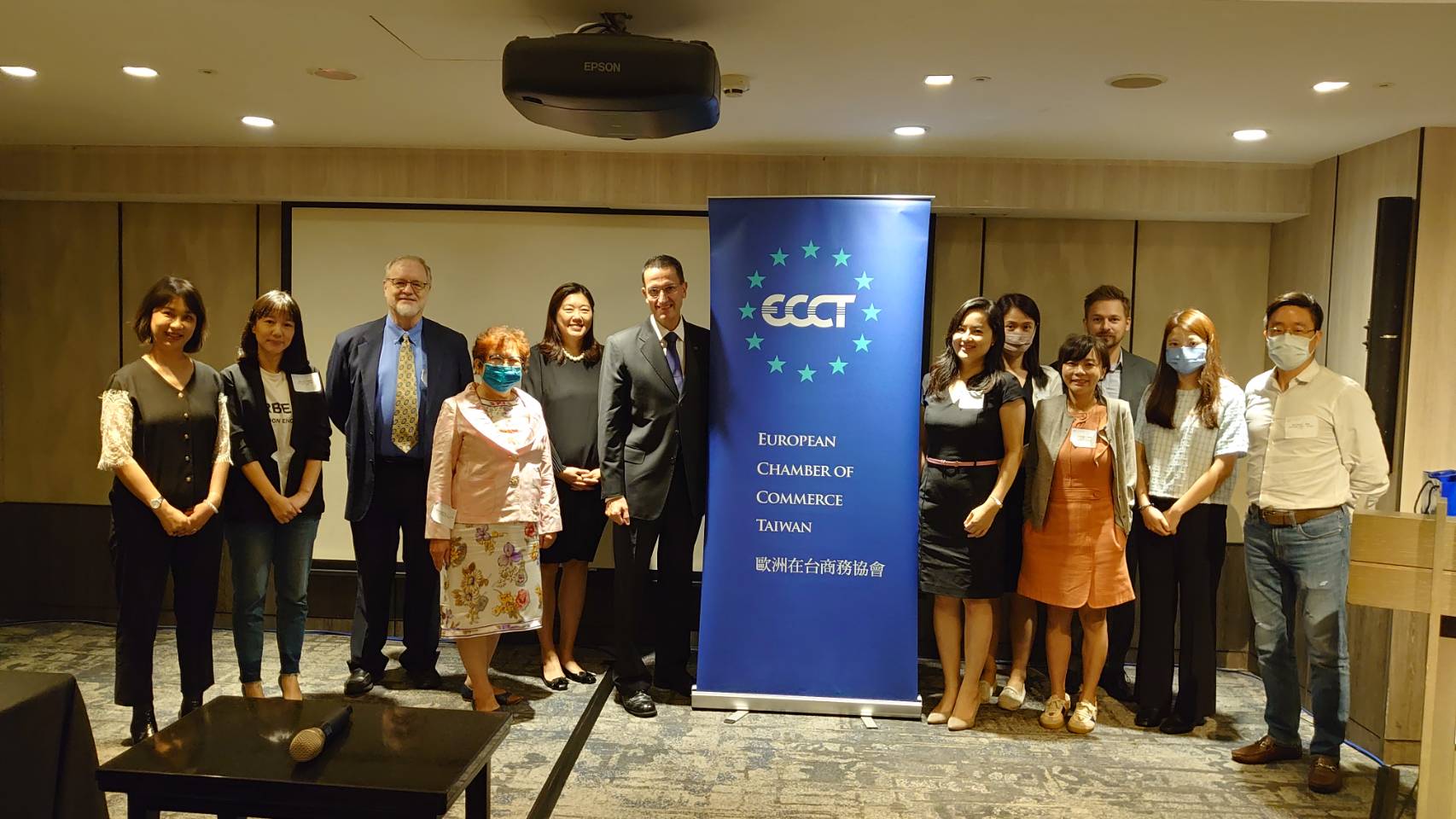Brand protection in Taiwan

The ECCT's Luxury Goods committee arranged a lunch on the topic of how consumer goods and retail industries in Taiwan can enhance protection of their brands. The event featured a presentation by guest speaker Monica Chao, Partner at Baker McKenzie in which she shared Intellectual Property Rights (IPR) related protection procedures, local regulations, and practices from a legal perspective to luxury goods and retail business operators in Taiwan.
She began by illustrating some examples of counterfeited products and the misuse of protected logos and designs. Rights holders have the option of taking civil or legal action against the abuse of their trademarks. However, before taking legal action, they should first ensure that their registered trademarks are in use and that they are identical to those that are registered as trademarks.
It is relatively cheap to register trademarks in Taiwan. The process usually takes about eight months (although a fast-track mechanism is available that takes around five months). Protection lasts for 10 years and can be renewed thereafter.
The Intellectual Property & Commercial Court (IPC Court) has subject matter jurisdiction over all civil, criminal and administrative actions in relation to IP disputes, including trademark infringements. For criminal cases, the IPC Court operates as an appellate court only. A trademark infringement case may also be brought before a regular district court, but appeals are subject to the IPC Court's jurisdiction.
Civil remedies, including preliminary and permanent injunctions as well as damages, are available for all types of IP infringement. The infringing goods can be ordered to be destroyed, and the rights holder may request publication of part or the whole of the court judgment at the cost of the infringer. The rights holder may also consider applying for a preservation of evidence order before filing a civil action to collect evidence.
Under the Trademark Act, right holders may claim damages or the profits made by the infringer from the infringement. Taiwan law permits the plaintiff in any civil case to freeze the assets of the defendant by paying a bond to court (around one-third of the value of the assets to be frozen). It takes one to three years for a final decision to be rendered in civil procedures.
However, according to Chao, rights holders in Taiwan prefer pursuing criminal action remedies. One reason for this is because civil action is time-consuming as well as costly since it involves an investigation and evaluation. A rights owner may lodge a complaint of trademark infringement with and request a search warrant from the prosecutor's office or police. With the warrant in hand, the police may raid the infringer's premises, inventory and seize all counterfeit goods, and direct the responsible person to appear at the police station for investigation. Based on the evidence gathered during the raid, the prosecutor will decide whether to proceed with indictment.
Taiwan has three IP police branches (in Taipei, Taichung and Kaohsiung) and four customs branches. Rights holders need to act quickly when dealing with customs. In cases when suspected products have been seized, if the trademark owner fails to proceed with on-site verification or to provide the verification results within three days after the on-site verification, the suspected products will be released.
The speaker concluded with advice to rights holders to examine the status of their trademarks, monitor the local market, and cooperate with the IP police and customs.
